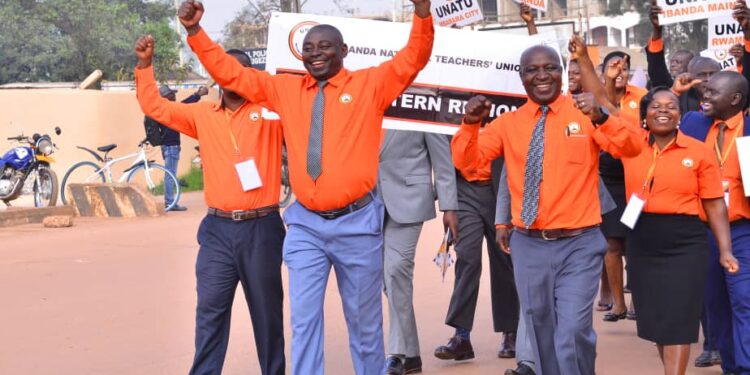
By our reporter
Teachers and civil servants under their umbrella body, the Uganda National Teachers’ Union (UNATU), appear to have lost the battle in their ongoing industrial action over low pay.
The strike, which began over a month ago, aimed to push government to increase salaries for arts teachers and other civil servants. However, no attention has been given to their demands, as top government officials, including President Yoweri Museveni, have continued with political activities and campaigns across various districts without addressing the issue.
Observers note that the situation has been worsened by the lack of public support. Despite schools remaining partially paralyzed, no parent or community leader has openly pleaded with striking teachers to return to class, a sign that the teachers’ strike has not attracted sympathy from the public.
Meanwhile, the Uganda Certificate of Education (UCE) examinations have successfully commenced and are ongoing without major disruption. The Primary Leaving Examinations (PLE) are also scheduled to begin soon, with plans already underway for private and retired teachers to step in and support the Uganda National Examinations Board (UNEB) in case striking teachers refuse to supervise the exams.
This move, analysts say, further weakens UNATU’s position and may leave the striking teachers sidelined in future considerations.
While the government seems to have won this round, the real losers remain the learners, whose education has been severely affected by the prolonged industrial action.
As the dust settles, it is becoming clear that teachers may need to adopt a new strategy of engagement and negotiation if they are to have their grievances addressed in the future.

















